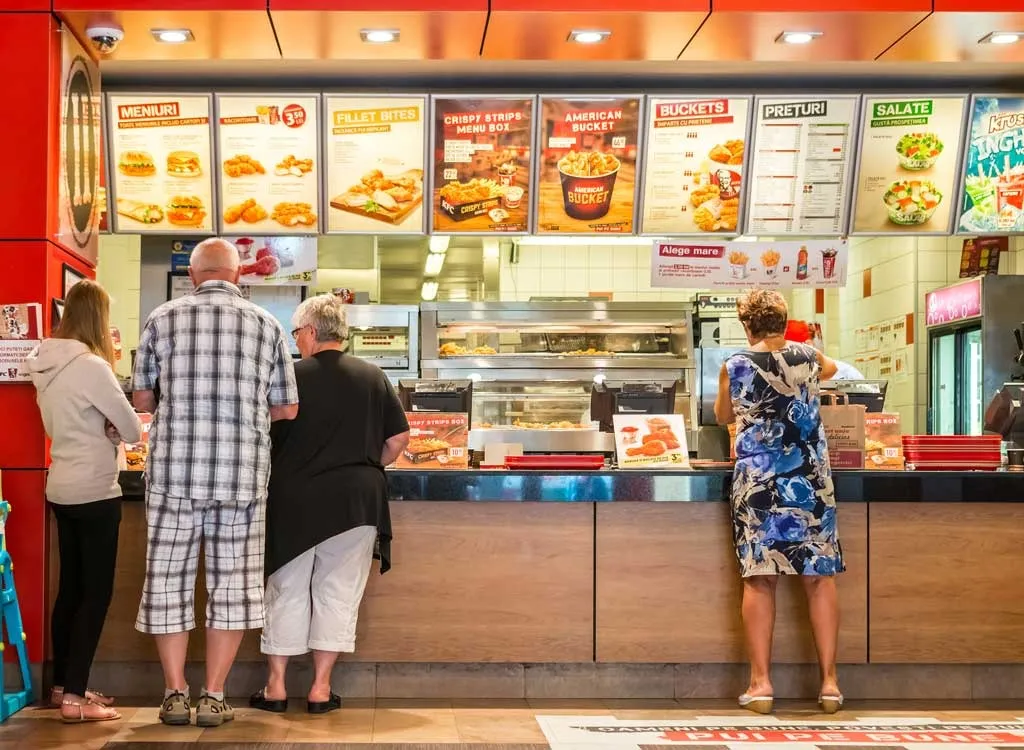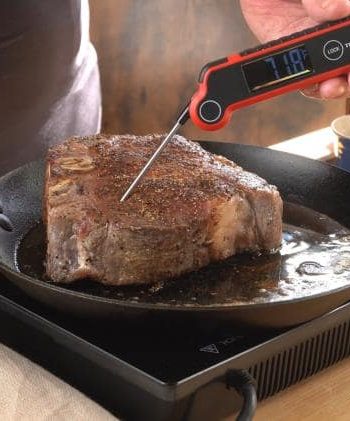The fast-food industry, with its quick service and convenient meals, has become an integral part of our daily lives. In the United States alone, the fast-food sector serves millions of customers every day, contributing significantly to the economy.
However, the bustling nature of these establishments, combined with high customer turnover and quick meal preparation, can sometimes lead to safety oversights. Recognizing the Crown Jewels of Caution can help prevent fast-food fumbles, ensuring a safer experience for both employees and patrons.
Understanding the Landscape
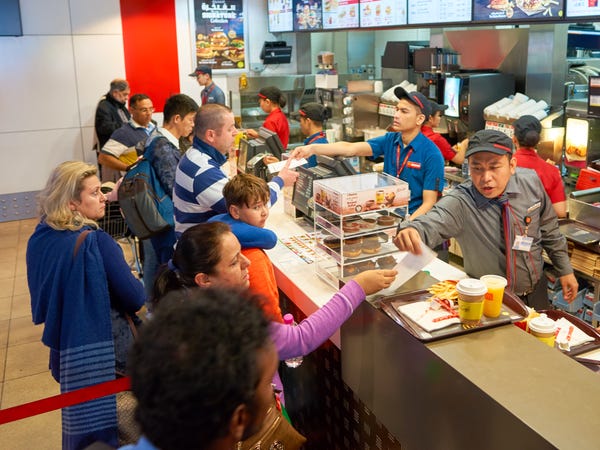
Source: businessinsider.com
The Fast-Food Industry at a Glance
Fast-food restaurants are known for their efficiency and affordability, making them a popular choice among consumers. According to the National Restaurant Association, the fast-food industry is expected to generate $899 billion in sales in 2023, a clear indicator of its massive presence and influence. However, this high-paced environment is not without risks. From hot oil burns to slip-and-fall accidents, the hazards are numerous, making safety precautions paramount.
Historical Accidents and Lessons Learned
Over the years, there have been several high-profile incidents within fast-food chains that have led to serious injuries. These incidents have not only resulted in harm but have also led to significant legal repercussions for the establishments involved.
For example, slip-and-fall incidents due to unmarked wet floors or burns from improperly handled hot beverages highlight the need for stringent safety measures. Each case has contributed to a growing awareness and evolution of safety standards within the industry.
Safety First – For Employees
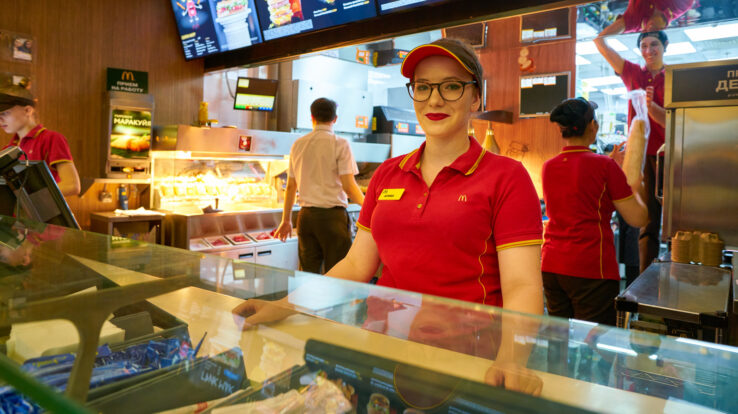
Source: thedailymeal.com
The Kitchen Battlefield
The kitchen in a fast-food restaurant is a hotspot for potential hazards. Employees are often required to work with hot surfaces, handle sharp objects, and move quickly in slippery conditions. To mitigate these risks, it’s crucial for establishments to implement preventive measures such as non-slip mats, proper personal protective equipment (PPE), and regular maintenance of equipment. Ensuring that all employees are trained on how to safely handle kitchen equipment can significantly reduce the incidence of workplace injuries.
Health and Hygiene Protocols
In the realm of fast food, health and hygiene take center stage. Personal hygiene, including regular hand washing and the use of gloves when handling food, is essential in preventing foodborne illnesses.
The Centers for Disease Control and Prevention (CDC) emphasizes the importance of food safety practices, noting that they are critical in protecting consumers from illnesses such as E. coli and Salmonella. Restaurants must adhere to strict health codes and guidelines to ensure that food is safe for consumption.
Training and Awareness
Continuous training and awareness are key components in maintaining a safe working environment. Fast-food chains must invest in comprehensive training programs that cover everything from food handling and hygiene to emergency response procedures. Regular safety drills and updates on the latest health and safety regulations can empower employees, making them more confident in their roles and reducing the likelihood of accidents.
Patrons’ Paradise – Ensuring Customer Safety
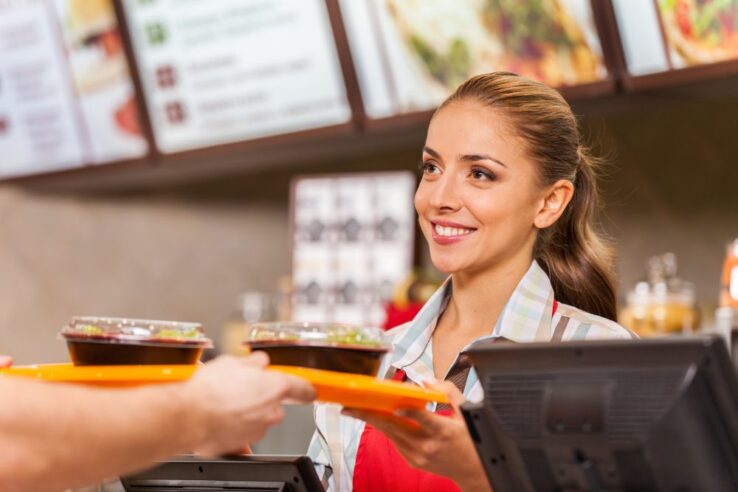
Source: compliancemate.com
Navigating the Dine-In Dilemma
For customers choosing to dine in, cleanliness and safety in the dining area are of utmost importance. Spills should be promptly cleaned, and high-traffic areas must be kept free of obstacles to prevent falls. Additionally, ensuring that tables and chairs are in good repair can help avoid unexpected injuries.
The Takeaway Tactic
For takeaways, the packaging and handling of food are critical in maintaining its quality and safety. Fast-food restaurants must ensure that food is stored at the correct temperature to avoid spoilage and that packaging is secure to prevent leaks and spills. This not only protects the consumer but also helps maintain the establishment’s reputation for quality and safety.
Digital Dining – Online Orders and Deliveries
The rise of online orders and contactless deliveries has introduced new safety considerations. Establishments must ensure that their delivery personnel are trained in safe handling and delivery practices, including the use of insulated carriers to keep food at the appropriate temperature. Moreover, the health and safety of delivery personnel cannot be overlooked, as they are a vital link in the fast-food chain.
Ensuring the safety of both employees and patrons in the fast-food industry requires a multifaceted approach, involving rigorous training, adherence to health and safety regulations, and a proactive stance on preventing accidents. By focusing on these Crown Jewels of Caution, fast-food establishments can provide a safer, more enjoyable experience for everyone involved.
For more information on navigating the legal landscape of fast-food safety, consider reaching out to Adley Law Firm, which has expertise in handling cases related to fast-food injuries, including those seeking a Burger King injury attorney.
Legal Landmines – Navigating Liability
Understanding Liability in the Fast-Food Industry
The legal landscape for fast-food establishments is fraught with potential pitfalls. Businesses are legally obligated to ensure the safety of their employees and customers. Failure to do so can result in significant legal and financial consequences. Establishments must be aware of the laws and regulations governing workplace safety, food handling, and public health. For instance, the Occupational Safety and Health Administration (OSHA) sets and enforces safety standards in the workplace, which fast-food chains must comply with to avoid penalties and lawsuits.
Implementing Proactive Legal Protections
To minimize legal risks, fast-food chains must adopt a proactive stance towards safety and compliance. This involves regular audits of safety practices, thorough training programs, and immediate rectification of any identified issues. Ensuring that all safety measures are documented can also provide a defense in the event of legal action. Moreover, having a clear protocol for dealing with accidents, including timely reporting and investigation, can help in mitigating the impact of potential legal challenges.
The Future of Fast-Food Safety
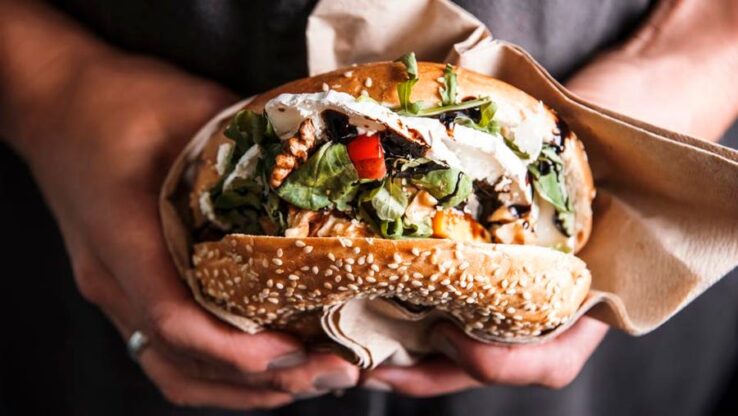
Source: forbes.com
Technological Innovations and Safety
The future of fast-food safety looks promising, with technology playing a pivotal role in enhancing safety measures. Innovations such as automated cooking equipment can reduce the risk of burns and injuries, while digital monitoring systems can ensure that food storage temperatures are maintained, reducing the risk of foodborne illnesses.
Additionally, the use of apps for training and compliance can ensure that employees are up-to-date with the latest safety protocols, making it easier to maintain high standards of safety across the board.
Cultivating a Culture of Safety
Ultimately, the key to preventing fast-food fumbles lies in cultivating a culture of safety within the organization. This means going beyond mere compliance with regulations and fostering an environment where safety is everyone’s responsibility.
Leadership plays a crucial role in this process, setting the tone for the importance of safety and leading by example. Encouraging open communication about safety concerns and recognizing employees who exemplify safety practices can also reinforce the importance of safety within the organization.
Conclusion
The fast-food industry, with its rapid service and high customer volume, faces unique safety challenges. However, by recognizing the Crown Jewels of Caution and taking proactive steps to address potential hazards, fast-food establishments can significantly reduce the risk of accidents and injuries. This not only protects employees and customers but also safeguards the business against legal liabilities and enhances its reputation in the competitive fast-food market.
As we continue to navigate the complexities of fast-food safety, it is imperative that we all – from industry leaders to frontline employees and patrons – play our part in fostering a safer fast-food environment. By doing so, we can ensure that the convenience of fast food does not come at the cost of safety.
For those who have experienced an injury in a fast-food establishment and are seeking legal assistance, Adley Law Firm offers expert guidance and support, including specialized services from a Burger King injury attorney.
Let’s work together to make fast-food fumbles a thing of the past.

